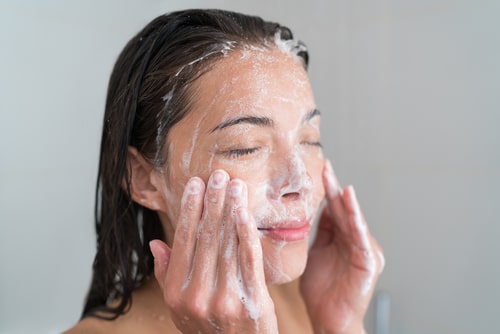Health
Benefits of natural handmade soaps
The body’s largest organ is the skin, and how we treat our skin has an impact on overall health. Our skin is highly porous and absorbent and if is exposed to any toxic chemicals continuously, there can be itching, irritation and vulnerable to damage.
Soap is one of the things that we use in an everyday routine on the skin, and knowing the ingredients are used within will allow you to differentiate between commercial soaps and natural handmade soaps.
Typically, commercial soaps contain chemical ingredients such as synthetic lathering agents (sulfates), chemical detergents, artificial fragrances, and preservatives (parabens). When you purchase handmade soaps, look for one that is made using traditional soap-making way. This involves the saponification of oils such as olive oil with an alkali such as lye (sodium hydroxide) to form soap and glycerin.
Here’s why you should pick a handmade soap over a commercial one.
Made With Natural Ingredients
With handmade soaps, natural ingredients are carefully chosen to maximize the benefits for you and your skin. By reviewing ingredients that goes into each soap, you can pick the soaps that contains the oils that work for you. From the use of coconut oil to shea butter that are rich in nutrients, the integrity and vitamins of the oils are preserved to protect your skin’s lipid barrier.
A skilled soap maker can modify their recipe to use sugar to increase soap lather, instead of adding chemicals to achieve a similar goal. For example, commercial soaps use synthetic foam boosters that contain petroleum by-products (i.e., Sodium Lauryl Sulfate) that make the skin dry and itchy.
Moisturizing and Glycerin Rich
One of the amazing effects of handmade soap is glycerin, the skin-nourishing emollient naturally produced in fats and oils. It draws water to the skin, serving as an excellent moisturizer and has been shown to prevent signs of aging. Handcrafted soap is typically cured for 6 weeks to evaporate excess water and develop a gentle bar that is suitable for sensitive skin.
Many factory-produced soaps have been said to strip their bar soaps of glycerin and instead place it in their lotions and creams. In place of glycerin, commercial soaps use synthetic chemicals that could have an adverse effect on your skin by causing redness, irritation and long-term harm.
Real Aromatherapy
Most soaps available today are scented either with essential oils or fragrance oils. Essential oils are all natural and extracted from plant parts, while fragrance oils are synthetically created in a laboratory from aroma compounds.
Some soap makers use fragrance oils but here at Soapdia, we use pure plant-based essential oils. In aromatherapy, essential oils are used to enhance mental and physical well-being. The oils we choose to use in our soaps are chosen for their attributes- such as lavender for its calming effect and juniper berry for skin toning.
Many fragrance oils mimic scents found in nature such as chocolate and strawberry, but they don’t retain any of the therapeutic effects of essential oils. Even though fragrance oils tend to have a much longer lasting scent that essential oils, they are not natural and can be detrimental to sensitive skin sufferers.
In a world where health and self-care are important, handmade soaps are better options than commercial soaps. For those of you out there who would like a basic truly natural homemade soap with no essential oils, no clays, no exfoliants, you may like to pamper yourself with our Unscented Body Bar.

